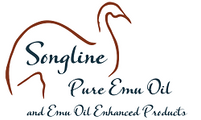Gluten, SLS, Parabens in Hair Care Products
Posted by Dee Dee Mares on Jul 20, 2017

We are all becoming more adept at reading labels for our food and personal use products. Horrifying information hits the media daily about common additives in products suddenly being linked to health problems. Many people are already aware of their sensitivities to chemicals and additives; but others have not yet made the connection between issues they suffer with their health or the quality of their skin, hair and nails and the products they use.
When it comes to hair care products most manufacturers focus on the aesthetics of the experience (rich lathering, highly scented products) and the short term results (shine and manageability) rather than long term health implications for the scalp and hair. The truth is dandruff, itchy scalp; unhealthy hair and hair loss are many times created or acerbated by the shampoos we use.
Your scalp is very thin and has minimal subcutaneous tissue compared to skin over other parts of the body. Blood flow delivers oxygen and nutrients to the hair follicle and the lymphatic system removes excess fluid, waste, and debris. If the scalp becomes irritated and inflamed by exposure to irritating chemicals the blood and lymphatic systems’ access to the hair follicle is limited resulting in a decline in health of the hair shaft and the potential for hair loss. New skin cell generation also slows down and the scalp thins further resulting in a vicious cycle of decline.
What ingredients should we avoid:
Parabens: a class of low cost chemical preservatives used to inhibit microbial growth and extend shelf life. Widely used even though they are known to be toxic and cause allergic reactions and skin rashes.
SLS - Sodium Lauryl Sulfate: a synthetic substance used in shampoos for its detergent and foam-building abilities. It causes eye irritations, skin rashes, hair loss, dandruff, and allergic reactions.
For some Gluten: there is a lot of dialog about whether or not gluten causes allergic reactions when applied topically. Some state the compound is too large to be absorbed through the skin or that it must come in direct contact with the intestinal tract to cause problems. Others feel that topical absorption is probable and there are many anecdotal testimonials of people with gluten intolerance feeling remarkably better after removing gluten from their body products. Dr. Kenneth Fine, M.D. of EnteroLab a clinical laboratory specializing in analysis for food sensitivities stated “Gluten sensitivity is a systemic immune reaction to gluten anywhere in the body, not just that entering the body via the gut. Therefore, topically applied lotions, creams, shampoos, etc. containing gluten would indeed provide a source of gluten to the body, and we therefore recommend all such products be discontinued for optimal health.”

